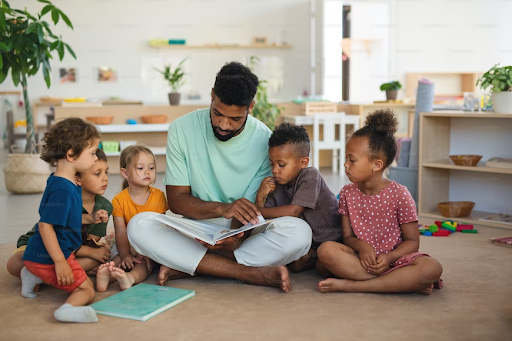There I was, nestled among the quiet aisles of the library, surrounded by a sea of empty tables. The silence was almost tangible, each person an island unto themselves, absorbed in their own world of thoughts and words. But then, the unexpected happened—a random girl chose to sit right next to me, shattering the solitude with her unspoken presence. It was a moment that seemed to defy the unwritten rules of personal space and library etiquette. Yet, it was this very moment that sparked a cascade of reflections on human connection, the complexities of life, and the true meaning of family.

As I sat there, trying to refocus on my work, two men entered the scene. Their appearance was rough around the edges—dirty clothes, untamed facial hair, and a distinct smell that spoke of cigarettes and days without a shower. It was clear they were homeless, their bond the only possession they seemed to carry with certainty. One chose to sit behind me, while the other took a spot across the table. Their voices, unmodulated by the hushed tones typically reserved for libraries, cut through the quiet.
I’ll admit, my initial reaction was one of annoyance. I felt like a cranky librarian, longing for silence. But as their conversation unfolded, a story about a jail experience told with zombie-like motions, I couldn’t help but listen. The tale was met with a weak laugh, a signal that perhaps the listener’s mind was elsewhere. They stayed for a brief five minutes before moving on, leaving me to ponder their lives and the paths that led them here.
It’s easy to judge, to look upon others with disgust or embarrassment without understanding their journey. I found myself contemplating their past—what led them to a life on the streets? Was it a series of choices, or were they victims of circumstance? Did addiction rob them of a ‘normal’ life? These questions lingered, challenging my initial reactions and forcing me to confront my own biases.
This encounter in the library, though brief, was a stark reminder of the many faces of family. The theme for September 15 to October 14, 2015, was about family in all its forms—immediate, dreamed of, friends, or fleeting. The contributors were asked to use ‘family words’ and to bring new words into the family of words. The responses were as varied as the concept of family itself.
‘Some days we are one of many, some days we are many of one, but everyday we are one family.’ This sentiment captures the essence of our shared humanity, regardless of our individual circumstances. Family is not just defined by blood or proximity; it’s an ever-expanding circle that includes those who offer ‘truthful love and unwavering support.’ It’s about being there for your loved ones, even when the rest of the world turns away.
The stories shared by the contributors painted a vivid picture of what family means to them. From the laughter and antics of a loud Dominican family to the quiet strength of a single mother creating a loving home, each narrative was a testament to the diverse ways we experience and define family. ‘Family is a dance with the ones you love. Careless and beautiful, family is the alter of life.’
But family can also be a source of pain, a ‘broken shard worn smooth with time.’ It can be a complex machine, where each member plays a crucial role, and when one cog is out of sync, the entire system feels the impact. Yet, even in the face of adversity, family remains a foundational force, a ‘solid ground for us all to stand.’
As I reflect on the random girl who sat next to me and the homeless men who briefly shared my space, I realize that family is not just about the people we go home to. It’s about the connections we make, the empathy we extend, and the understanding we seek. It’s about recognizing that, in some way, we are all family, navigating the complexities of life together.
Family is the thread that weaves through our experiences, binding us in ways we may not always understand. It’s the laughter over a shared meal, the support during tough times, and the love that endures despite distance or differences. It’s the recognition that, no matter where we come from or what we’ve been through, we all have a place at the table of humanity.
So, the next time you find yourself in a library, or any place for that matter, and someone sits a little too close, remember that they too are part of this intricate tapestry of life. They too have a story, a past, and a longing for connection. And in that moment, you are family, sharing a silent bond that speaks volumes about the human experience.
Related posts:
Why sit next to me?
‘If you scream you are a dead duck’: At 14, my mother left me alone all summer – then the man with a knife found me
the new hire who showed up is not the same person we interviewed





